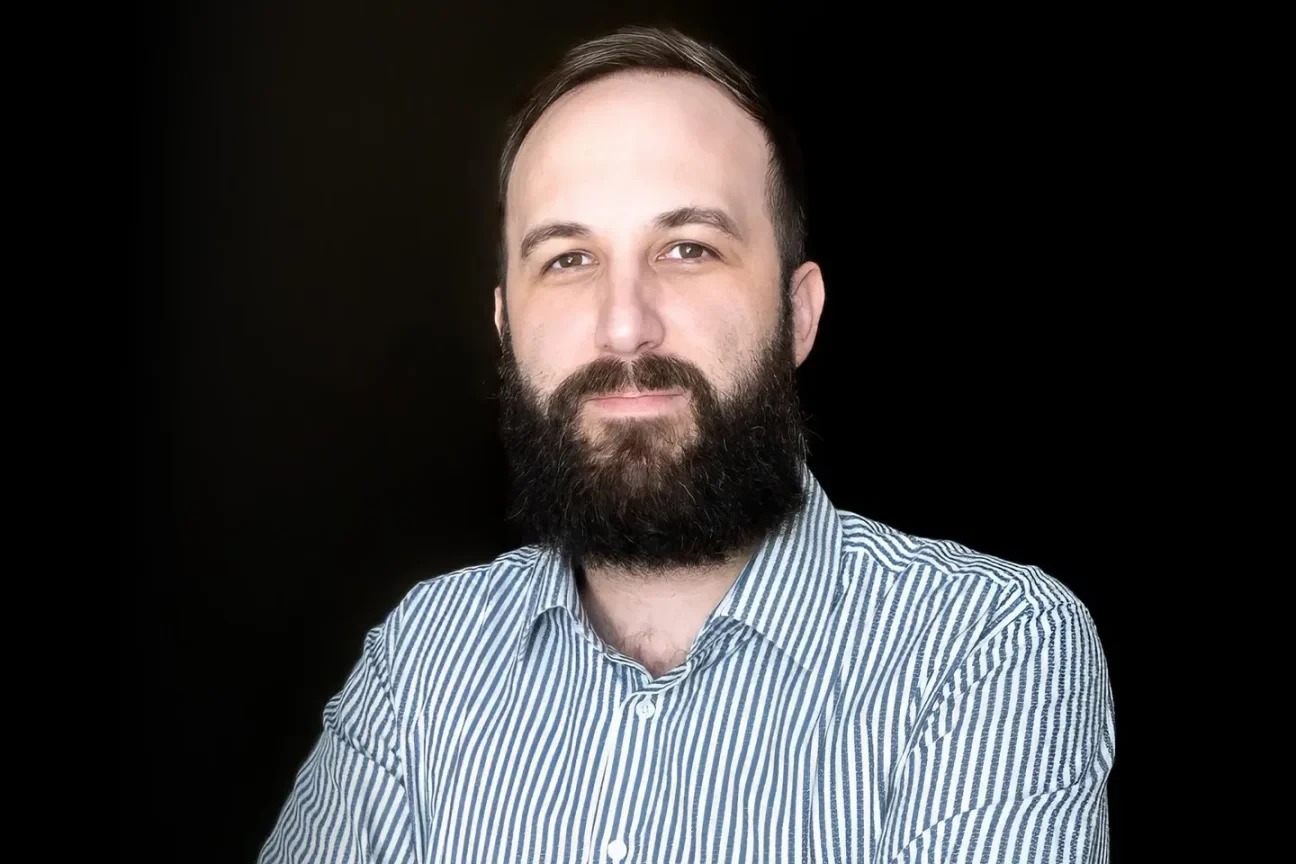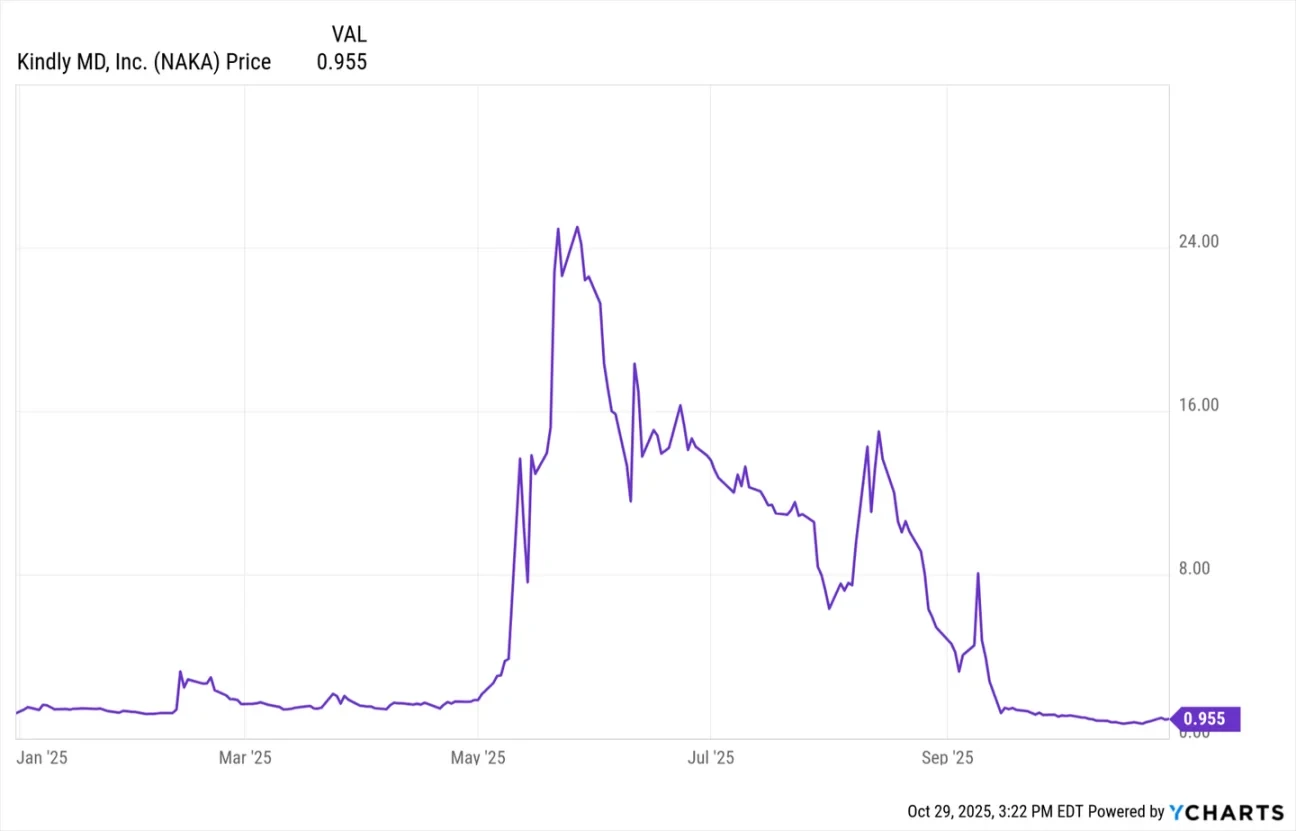Original author: Nina Bambysheva, Forbes
Original translation by Luffy, Foresight News
In David Bailey's words, the past six months have been a "Saving Private Ryan-esque battle." The 35-year-old CEO of Nakamoto Holdings—the digital treasury he founded to manage corporate Bitcoin reserves—has witnessed his boldest gamble—the merger with KindlyMD, a small publicly traded healthcare company in Utah—give way from initial success to its current ordeal.
"I'm busy getting beaten up in the stock market," he said. The company's stock price has plummeted from $25 to 92 cents in six months.
Bailey is not a typical Nasdaq-listed company executive. He is better known as the CEO of Bitcoin Magazine, the organizer of the world's largest Bitcoin conference, and a key figure in changing Donald Trump's attitude towards cryptocurrency. "Our goal," he said, "is to become the world's number one Bitcoin company."

In May of this year, KindlyMD, a publicly traded medical clinic operator in Utah with annual revenue of $2.7 million offering traditional and alternative therapies, announced a reverse merger with Bailey's Nakamoto Holdings, aiming to transform into a Bitcoin holding company. The merged company is listed on Nasdaq under the ticker symbol NAKA and currently holds approximately $653 million worth of Bitcoin.
Wall Street is not optimistic about Bailey's plans. After hitting a peak of nearly $35 in May, the company's stock price remained below $1 for most of October, representing a 98% discount to the net value of the 5,765 bitcoins it holds on its balance sheet.
Nakamoto Holdings proved to be a victim of its own financing strategy. To raise funds to purchase cryptocurrencies, the company completed a series of public market private equity (PIPE) transactions totaling approximately $563 million. These transactions issued hundreds of millions of new shares to private investors at a significant discount, resulting in a substantial dilution of existing shareholders' equity. In September, a large number of PIPE shares became tradable, prompting investors to rush to cash out and lock in profits, triggering a stock price crash. Bailey's letter to shareholders urging short-term speculators to exit the stock further exacerbated the situation.
"Investors who come solely for trading are actually a very costly source of funding for us," Bailey said. "I know some people disagree, but what we need are long-term partners with aligned interests. This is a high-stakes gamble for us."

In fact, Bailey has stated that he will soon integrate his other businesses—including BTC Inc., the parent company of Bitcoin Magazine, Bitcoin conferences and consulting services, and UTXO Management, which owns the hedge fund 210k Capital and the venture capital firm 2140—into KindlyMD . Forbes estimates that these entities could add up to $200 million in value to the Bitcoin treasury company while increasing Bailey's stake (currently 3%).
Bailey declined to comment on the Forbes data but said the cash generated by these profitable businesses would help KindlyMD buy more Bitcoin. According to sources, 210k Capital's assets under management alone quietly increased from approximately $100 million in January to $400 million, a fourfold increase.
This up-and-coming financier's logic is simple: Michael Thaler holds over 600,000 bitcoins and has neither the need nor the need for much operational business. Other players must have a differentiated strategy to prove their worth.
"We need to do things that create value," Bailey said. "Running a physical company is one way to do that."
Although KindlyMD is headquartered in Salt Lake City, Utah, Bailey primarily works from his home in Guaynabo, Puerto Rico. During video calls, he often sits in front of a massive painting depicting a bank engulfed in flames. This work, by crypto artist Cypherpunk Now, is one of hundreds of pieces in Bailey's collection and is titled "Burning Bank."
"Every time I have a meeting with a banker, I make sure this painting is in the background," he said with a laugh. For someone aspiring to build their own bank, this scenario couldn't be more fitting.
Bailey grew up on a farm in Fayetteville, Tennessee, about an hour's drive south of Nashville. He developed a strong interest in money and markets early in life. In 2009, he enrolled at the University of Alabama to study economics, finance, and mathematics, aspiring to become an investment banker.
"I used to be a huge fan of Warren Buffett, and I attended every Berkshire Hathaway shareholders meeting in college. I never imagined I would buy Bitcoin; it was completely out of character for me at the time," he recalled.
In 2012, a friend sent him an article about Bitcoin, and everything began to change. Bailey initially thought Bitcoin was a scam but couldn't prove it. In November of the same year, when the price of Bitcoin was fluctuating between $10 and $12, he made his first investment.
In 2014, a year after graduating, Bailey joined Bitcoin Magazine, an early publication focused on the emerging cryptocurrency, co-founded by Vitalik Buterin, who later founded Ethereum. Shortly afterward, Bailey and his college friend Tyler Evans acquired the magazine through their co-founded company, BTC Inc.
To expand their brand influence, the duo launched the Bitcoin Conference in 2019. This festival-like event has since become the "Coachella" of the crypto world, making Bailey one of Bitcoin's most influential evangelists. Last year's conference in Nashville attracted 35,000 believers, investors, and politicians, including then-presidential candidate Donald Trump.
Bailey stated that his connection with Trump began in a 2024 conversation in Puerto Rico about how to get the president interested in Bitcoin. "Paul Manafort was the initial gatekeeper, helping us get into his circle," he said. Soon after, Bailey's team was granted permission to present at Trump Tower. The core message was simple: Bitcoin voters would play a crucial role in the presidential election. Trump, always adept at deals, decided to meet, hoping that if Bailey and his friends could bring votes and enthusiasm, the cryptocurrency industry would gain a voice.
“Trump would turn everything into a season of ‘The Apprentice,’ and you’d be auditioning forever,” he added. “‘Okay, you want to be a Bitcoin advisor? I’ll find three more people to compete for that position.’” Bailey ultimately won, and he and industry leaders raised over $100 million for Trump’s campaign, including $21 million at the Nashville convention alone. It was at that convention that Trump’s famous promise—to make America the global cryptocurrency capital—became widely known.
“He was very uncertain at first, but the cheers from the audience changed his mind. As he left, he said, ‘These Bitcoin enthusiasts like me, they’re my people,’” Bailey recalled. Now an informal advisor to the president, Bailey believes Trump simply realized that cryptocurrencies were being treated differently from all other asset classes (Trump has profited hundreds of millions of dollars from the cryptocurrency sector since the election). He believes the current goal is to create a level playing field, with a grander vision of making the U.S. the most Bitcoin-friendly country in the world.
Bailey claims that in his 13-year career, he has invested in over 100 Bitcoin-related companies, with Metaplanet and Smarter Web being his top performers, turning millions of dollars into hundreds of times the initial investment. He states that the returns are not just financial; good ideas are replicated. "If thousands of Bitcoin companies thrive, we win."
This long-term vision, inspired by Warren Buffett, is now driving the development of KindlyMD. Bailey envisions it as a large holding company with profitable and independently operated subsidiaries. For him, this is not just an investment strategy, but a replay of monetary history. His concept of a "Bitcoin standard" echoes the evolution of gold: gold and silver trading houses became gold and silver banks, and then developed into central banks and investment banks. He believes that today's Bitcoin treasury companies are the gold and silver trading houses of the digital age, evolving into a new type of bank.
KindlyMD is driving this transformation. The company has invested in other Bitcoin holding companies, namely Metaplanet in Japan and Treasury BV in the Netherlands. "Imagine nurturing an ETF," Bailey explained, "that's what we're doing—nurturing these actively managed ETFs globally in the form of corporate stocks." Of course, like other newly formed crypto treasury companies, Bailey's approach to the public markets avoids the scrutiny of the U.S. Securities and Exchange Commission (SEC) regarding ETFs and IPOs.
Despite KindlyMD's dismal debut on Wall Street, Bailey wasn't too bothered. " The best thing about Bitcoin is that it's very forgiving; you can make mistakes in your career and then start over, " Bailey said.
- 核心观点:Nakamoto Holdings转型比特币公司股价暴跌。
- 关键要素:
- PIPE融资导致股权稀释98%。
- 比特币持仓价值6.53亿美元。
- 计划合并其他业务增持比特币。
- 市场影响:暴露加密公司上市融资风险。
- 时效性标注:中期影响。



